Our Students
Our Educators
Student Support Services


Welcome to the KPIS Guidance and Counseling Department at KPIS. All teachers and staff work together to support student needs. At the core of the KPIS Guidance and Counseling Department, is Mr. John E. Carr, Secondary School Counselor, Ms. Annamae Fernandez, Early Years and Primary School Counselor and Ms. Monisha Agarwal, Secondary School Social/Emotional Counselor.
The aim of the KPIS Guidance and Counseling Program is to assist students at all levels with personal matters, social/emotional developmental concerns, academics, and college/career planning, supporting students through the following services:
Responsive Services or Referrals: In response to parents, students, and/or teachers and staff requests or incidents, the counselor will assist to identify the problem and causes, and arrive at a resolution so that appropriate action is taken.
Counseling Class
The counselor in the primary school arranges group activities throughout the year to build rapport with all students, guide students in their developmental stages, and provide support to students with any challenges that they may be faced with. The secondary school counselor provides guidance for middle school students going through their growth stages and high school students as they are planning to graduate from high school, choose electives, preparing for college and their future careers.
Career and College Counseling
The culmination of a K-12 educational career is admission to university/college. Individual counseling sessions will be provided for each student to discuss and assist students with their future goals. Group workshops and university/college fairs and university/college representative presentations will be provided throughout the school year as opportunities arise. Information dealing with the university/college application process, including standardized testing issues, will be provided in both one-on-one and group activities to assist each student to meet his/her university entrance requirements.
Language Support
Immersion Program at KPIS
Immersion programs are very successful provisions for second language acquisition. Learners are immersed in second language experiences which are scaffolded for them as they gain proficiency in the language. Language immersion focuses more on the second language being a tool which is used to immerse the student completely within the subject. At KPIS for Grades 1-5, there are homeroom teachers and an EAL (English as an Additional Language) teacher at every grade level. The EAL teacher will plan and work closely with homeroom teachers to meet the needs of students who need extra language support. Both the homeroom and EAL teacher are responsible for all students in the classroom. However, the EAL teacher will also use the Common Core State Standards (CCSS) to teach grade level content. Additionally, the EAL teacher will use the California ELD Standards to provide English learner students with a high-quality program that will enable them to attain proficiency in English – developing the skills and confidence in listening, speaking, reading, and writing that are at the core of achievement inside and outside of the classroom. The California ELD standards correspond to the rigours CCSS and define the progression of language acquisition through three stages of proficiency and recognize that the student’s native language plays an important role in Learning English. At KPIS, no classroom should have more than one third of students identified as immersion students.
Current KPIS students will be recommended for the Immersion Program if there is :
- A direct teacher recommendation to move a student to the Immersion Program
If applicable, said teacher should have data including contrasting formative and summative classroom assessments, behavioral and instruction development notes, as well as any other documented interventions to prove that the student needs additional language support. Teachers should have an assessment portfolio for their students which should match standard-based grading.
*Note – Students will be graded on their grade level content. If a teacher is seriously recommending immersion, the next step is for the homeroom and EAL teachers to meet with the principal to deliberate.
We identify students who need language support in three phrases :
PROMOTION :
KPIS uses the California ELD standards to help our English Language learners obtain grade level content with English language support. These standards identify students at three proficiency levels; Emerging, Expanding, and Bridging.
Emerging
English learners enter the Emerging level having limited receptive and productive English skills.
Upon exit from the Emerging level, students should have obtained basic English communication skills in social and academic contexts.
Expanding
As English learners progress through the Expanding level, they move from being able to refashion learned phrases and sentences in English to meet their immediate communication and learning needs toward being able to increasingly engage in using the English language in more complex, cognitively demanding situations.
Upon exit from the Expanding level, students can use English to learn and communicate about a range of topics and academic content areas.
Bridging
As English learners progress through the Bridging level, they move from being able to communicate in ways that are appropriate for different tasks, purposes, and audiences in a variety of social and academic contexts toward being able to refine and enhance their English language competencies in a broader range of contents.
Upon exit from the Bridging level, students can communicate effectively with various audiences on a wide range of familiar and new topics to meet academic demands in a variety of disciplines.
Students who have reached “proficiency” in the English language (as determined by above criteria) continue to build increasing breadth, depth, and complexity in comprehending and communicating in English in a wide variety of contexts.
- Homeroom and EAL teachers will identify what proficiency level a student is at after each quarter using the proficiency levels; Emerging, Expanding, and/or Bridging.
- If a student is bridging on their appropriate grade level, the homeroom teacher and EAL teacher will use student assessment portfolios, grades, MAPs and EPT (English Proficiency Test) to decide if the student is ready to move to the mainstream classroom. A meeting between the Homeroom teacher, EAL teacher, and Elementary principal will decide whether the child is ready to move to the mainstream classroom.
- At the end of each quarter, EAL teachers will inform parents what proficiency level a student is at. Students can be promoted to the mainstream classroom quarterly.
Learning Support
It has always been recognized that as good as the administration of a school or the talent of the teaching faculty the real strength of any school is in its student body. It is the self-motivation of the students, their willingness not only to work hard at their studies but also to contribute to the life of the school through extracurricular efforts that make a school special. KPIS has always been an active school with many enjoyable activities but the number of “extra” programs is growing significantly. Our music programs remain most commendable and our sporting teams and activities are growing stronger by the day.
The Guidance and Counseling Department(G&CD) has contributed to this positive list of activities in annually sponsoring internships during our October Break and with our Peer Ambassadors.
KPIS added a Peer Tutors program in 2015 and since then it has been a highly successful activity.The G&CD initiated an effort to start a tutoring program for students in the elementary school who needed, from reports by their teachers, a little extra academic support; especially, with their reading skills. With this in mind a significant number of very willing secondary school students volunteered their help. It took a bit of organizing and the program was in full swing with 10 tutors and 11 students (tutees) involved. It has been full steam ahead ever since.
The requirement for this program is for the tutors to commit themselves to work at least 1 hour after school per week. Absences were to be minimal and the notification of any absences viewed as critical. As for rewards, these would be confined solely to an accumulation of Community Service hours. Having confirmed their agreement to these terms, the tutors met with their assigned student’s teacher, learned their assignments and then met their “tutee(s)”. Many of the tutoring sessions take place in the G&CD Office after school.
Thusly, we have had the opportunity to observe many of the tutors and tutees working together. It has been a true pleasure to observe this activity taking place and we seriously doubt, despite the huge commitment, that any tutor regrets their decision to participate in the program. As for the tutees, the joy that one sees on their faces when they come to meet up with their tutors is a wonderful indication of high satisfaction in itself. Yes, as mentioned above, students willingly involved in extracurricular programs at school make for a far better school but when it is students helping students as in the Peer Tutors program, it is truly gratifying to see. Congratulations to all those students who have made KPIS a better school this year and from the G&CD, a special thanks to all the Peer Tutors their outstanding commitment and tutoring efforts.
- John E. Carr, High School Counselor
- Annamae Lopez Fernandez, Elementary School Counselor
- Ryan Roth Emry, Secondary School Social-Emotional Counselor
The internet links below are provided to assist with the university/college admissions process:
Counselors are available to advocate, mediate, coordinate, consult, lead and collaborate with teachers, administrators and parents to help the students be successful. The office is open from 7:00-4:00. Do not hesitate to contact the counselors when seeking assistance at 02 943 7790 (ext. 103).





